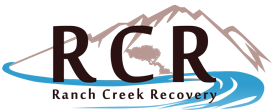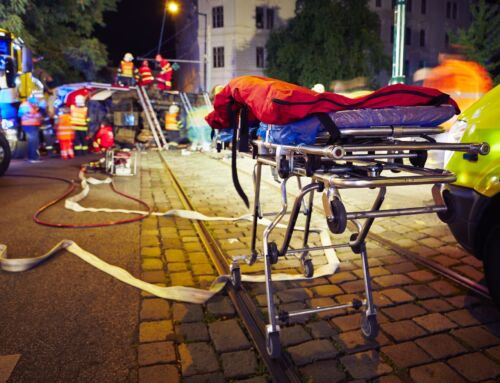Overcoming your addiction is similar to running a marathon: the journey can be long and difficult, but in the end, it will leave you feeling physically and emotionally empowered. Also like a marathon, overcoming your addiction is no quick accomplishment. It requires planning, preparation and a commitment to the entire process, no matter how hard it may become.
But your journey doesn’t end once you achieve sobriety. Your hard-earned personal success needs to be monitored and maintained in order to protect against your addiction triggers and the emotional stressors that can lead to unplanned moments of potential relapse.
You see, the thing about substance use disorders and addiction triggers is that they can range from the friends you hang out with, to your family history of substance use, to the places you choose to spend your downtime. They can sometimes affect you when you are feeling emotionally overwhelmed, driving you back into your substance of choice.
At other times, they can tempt you to relapse when you are feeling on top of the world and deserving of a reward.
Whichever way your addiction triggers display themselves, it is important to remember that they only provide false hope and momentary gratification. Their allure is temporary, but the potential destruction they initiate is much longer lasting.
Understanding how relapse presents itself and the way it impacts you individually is essential to avoiding the pitfalls associated with the addiction process.
What is Relapse?
Addiction relapse is a common occurrence. It is suggested that over 50% of all people who embark on their recovery journey will experience some form of relapse, or return to their substance of choice, along the way.
Focusing on persistence and not perfection is an important mind state to establish at the beginning of your recovery journey. This allows you to push for sustained sobriety, but prepares your mind for the potential setbacks that impact a large number of individuals pursuing long-term substance abstinence.
The 3 Stages of Relapse
The process of overcoming a substance use disorder is not a singular moment, it is a series of events and experiences that involve personal enlightenment and self-discovery.
Similarly, the process of experiencing a relapse is typically gradual, starting with a momentary feeling or temptation and building into a decision to abuse your substance of choice once again.
The act of relapsing can begin weeks, and sometimes even months, before the physical act is actually initiated. In all, the process of relapsing consists of three separate stages that starts with impulsive feelings and emotions and ends in the decision to physically fall back into your substance use disorder.
The Stages of the Relapse Process Include:
- Emotional Relapse
This initial phase of relapse consists of negative personal feelings, such as discontent and excessive defensiveness. In this stage, isolation and poor personal habits begin to erode the progress you have already made, pushing you away from your sober supports and back toward your impulsive addictive behaviors. - Mental Relapse
This secondary stage of relapse involves contrasting personal views within your own mind. On one side, you know you want to use but your conflicting personality still won’t let you fall back into that addictive pattern of behaviors. This phase can include glamorizing your past use and even planning out potential times to relapse, but not actually following through with those thoughts. - Physical Relapse
This final stage of relapse is engaging in the actual act of substance use. Ignoring or minimizing the first two stages of relapse will set you up for failure and leave you defenseless to the eventual temptation associated with your disease of addiction.
Signs of Emotional Relapse
Identifying the signs associated with emotional relapse can prove instrumental in avoiding more serious personal issues. This initial stage includes some of the following telltale signs of negative emotional experiences:
- Irritability
- Anxiety
- Poor sleeping habits
- Isolation
- Defensiveness
- Poor eating habits
- Withdrawal from positive social supports
While this list is not all inclusive, it does indicate some of the more common signs of emotional relapse you may experience. Addressing these feelings and surrounding yourself with positive social supports is an ideal way of overcoming these initial relapse instigators before they grow into something more serious.
Comprehensive Addiction Recovery and Relapse Prevention at Ranch Creek Recovery
The stages of the relapse process can impact different people in different ways, but the outcome is always the same. Ignoring the dangers of addiction relapse and isolating yourself from positive social supports will leave you lost, lonely and in search of guidance.
Taking the time to better understand your emotional and mental relapse experiences and triggers can help you conquer those personal demons. It can encourage you to ask for help when you need it most and take the necessary steps to address a relapse experience before it destroys all of the progress you’ve made in your recovery journey.
At Ranch Creek Recovery, we believe that relapse can happen to anyone, but your rehabilitation route can mean all the difference and better prepare you for the challenges ahead.
We address addiction recovery and relapse prevention head on through our non-12-step, individualized, holistic addiction treatment programs. Our team of treatment experts will work one-on-one with you to create a custom treatment and recovery plan that will help you feel confident and ready to enter your new, sober life.
Learn more about Ranch Creek Recovery, including what we offer and what we treat.
Have questions? We’re here to help. Contact us today.













